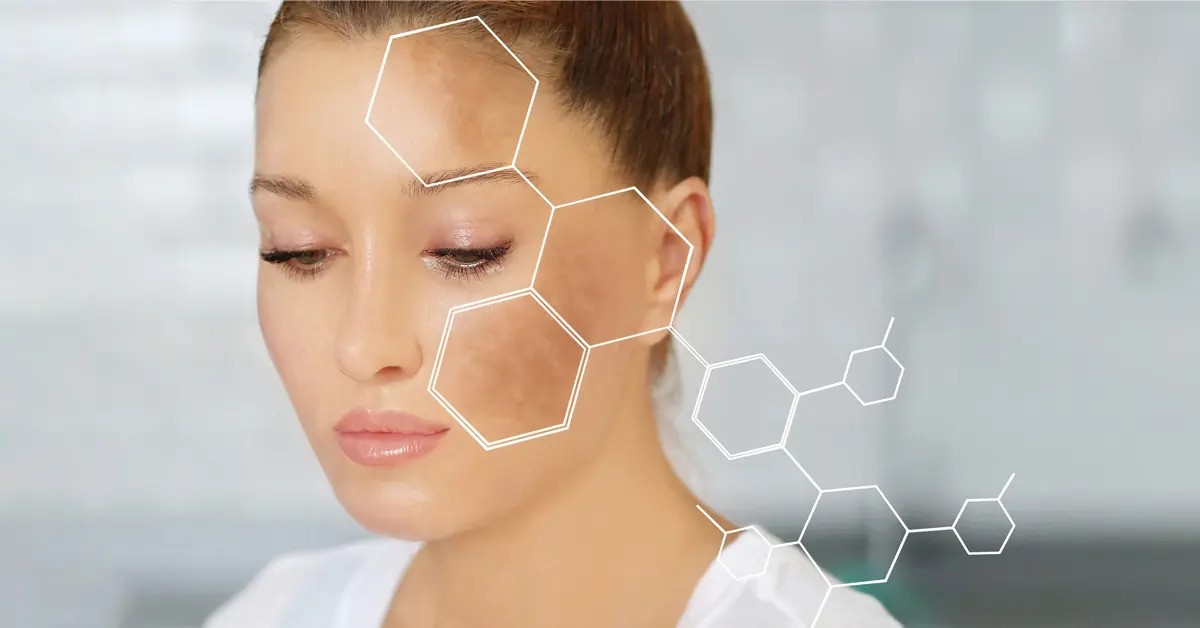Melasma in Islamabad is a common skin condition that results in dark patches, primarily on the face, and can affect both men and women. It’s often triggered by factors like hormones, sun exposure, and genetics. However, melasma can sometimes get darker over time, leaving individuals feeling frustrated with their skincare efforts. In this blog, we’ll explore the possible reasons why your melasma may be getting darker and what you can do to manage it effectively.
1. Increased Sun Exposure:
The Role of UV Light in Melasma:
One of the leading causes of melasma flare-ups or darkening is sun exposure. Ultraviolet (UV) rays from the sun stimulate the skin to produce more melanin, which can exacerbate melasma. Even brief exposure to the sun can worsen existing dark spots.
Why it darkens:
Melasma patches often darken when exposed to UV rays because the skin produces excess pigment as a protective mechanism against the harmful effects of the sun.
Solution:
To prevent further darkening, it’s essential to use broad-spectrum sunscreen with SPF 50 or higher daily, even on cloudy days. Reapply sunscreen every 2 hours when outdoors and avoid direct sunlight during peak hours (10 a.m. to 4 p.m.).
2. Hormonal Changes:
The Influence of Hormones on Melasma:
Hormonal fluctuations are a primary contributor to melasma, particularly during pregnancy (known as the “mask of pregnancy”) or with the use of birth control pills and hormone replacement therapy (HRT). These changes can trigger the skin to produce more pigment, leading to darker melasma spots.
Why it darkens:
Estrogen and progesterone hormones can increase melanin production, causing existing melasma to darken or new spots to appear.
Solution:
If hormonal changes are contributing to your melasma, consult your healthcare provider to explore alternative birth control options or hormone therapies. For pregnancy-related melasma, it typically fades after delivery, but sun protection remains crucial.
3. Improper Use of Skincare Products:
The Effect of Skincare Ingredients:
While skincare products designed to treat melasma can help lighten dark spots, improper or overuse of certain products can actually worsen the condition. Harsh exfoliants, acidic products, or those that irritate the skin can cause inflammation and make melasma darker.
Why it darkens:
Using products that cause skin irritation can increase pigmentation, leading to more noticeable and darker spots. Some ingredients may also cause photosensitivity, making melasma more susceptible to darkening under sunlight.
Solution:
Stick to gentle, hydrating skincare products, and consult a dermatologist before introducing strong active ingredients such as retinoids or hydroquinone. Always follow up with sunscreen to protect your skin from UV exposure.
4. Inflammation or Skin Irritation:
How Inflammation Affects Melasma:
Inflammation in the skin can lead to a condition called post-inflammatory hyperpigmentation (PIH), where dark spots appear after an injury, irritation, or inflammation. If you experience skin irritation from products or even scrubbing the skin too harshly, melasma can darken as a result of the inflammatory response.
Why it darkens:
When the skin is irritated or inflamed, melanin production can increase, leading to deeper and darker pigmentation in melasma patches.
Solution:
Avoid aggressive treatments or skin irritation. Use soothing and calming ingredients like aloe vera or chamomile, and avoid scrubbing or over-exfoliating the skin. Be mindful of products that may cause redness or irritation.
5. Underlying Medical Conditions:
The Role of Health Conditions in Melasma:
Certain health conditions, such as thyroid problems or metabolic disorders, can exacerbate melasma. Additionally, conditions like polycystic ovary syndrome (PCOS) can cause hormonal imbalances, further triggering melasma flare-ups.
Why it darkens:
These underlying medical conditions may disrupt the body’s normal hormonal balance, leading to more melanin production in the skin.
Solution:
If you suspect that an underlying condition may be contributing to your melasma, it’s important to speak with your doctor to address the issue. Treating the root cause of the problem can help manage melasma more effectively.
6. Genetics and Skin Type:
Why Your Skin May Be Prone to Darker Melasma:
Genetics plays a significant role in how your skin responds to melasma. People with darker skin types tend to have a higher risk of developing melasma, and the condition can be more persistent or prone to darkening in these individuals.
Why it darkens:
Genetic factors influence the production of melanin, making melasma more likely to darken over time. Certain skin types are more sensitive to pigmentation changes due to the higher concentration of melanin.
Solution:
While you can’t change your genetics, you can manage melasma by following a consistent skincare routine that includes sun protection and pigmentation-fading treatments like hydroquinone, retinoids, or vitamin C.
7. Failure to Use Sun Protection Consistently:
The Importance of Consistent Sun Protection:
One of the biggest mistakes people make when managing melasma is neglecting sun protection. Even if you’re using melasma treatments, failure to protect your skin from the sun can lead to melasma darkening, undoing any progress.
Why it darkens:
Melasma is a sun-induced condition, and prolonged or repeated sun exposure can reactivate pigment production in the skin, making existing melasma patches more prominent and darker.
Solution:
Make sun protection a daily habit. Use sunscreen with an SPF of 50 or higher, wear protective clothing, and avoid sun exposure whenever possible. Sun protection is the most important step in preventing melasma from worsening.
Conclusion:
If your melasma is getting darker, it’s essential to identify the potential triggers. Sun exposure, hormonal changes, improper skincare use, and even medical conditions can contribute to worsening pigmentation. By understanding these factors, you can take proactive steps to manage melasma more effectively. Incorporate gentle skincare, daily sun protection, and consult a dermatologist to determine the best treatment plan for your skin.
For more information visit Dynamic Clinic PK





Comments